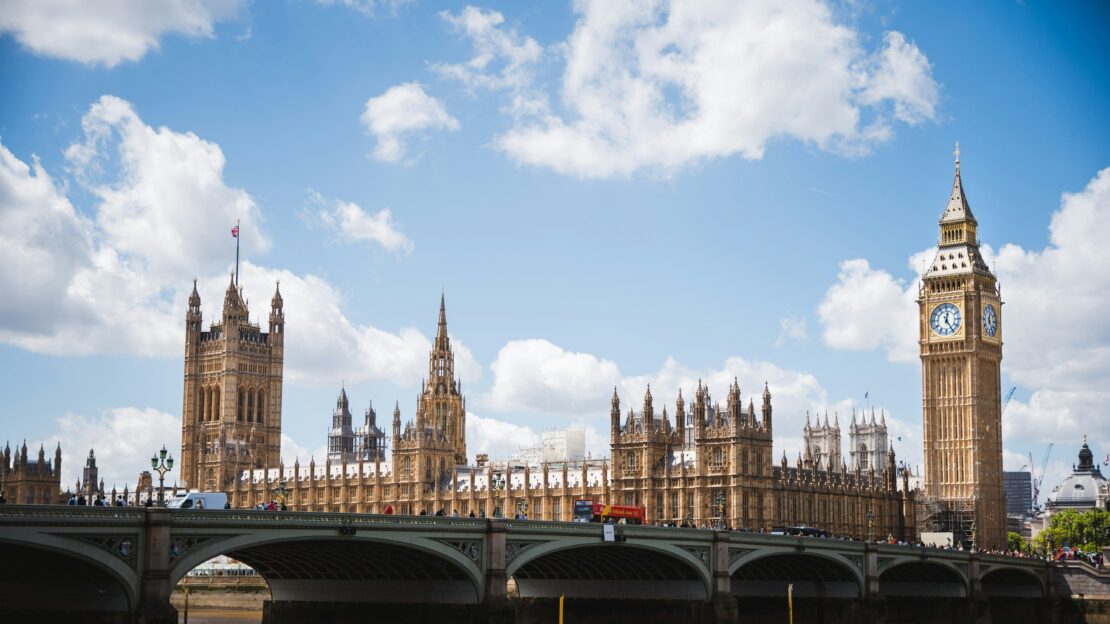Our articles are typically factual, based on the news and regulations available. Below, we cover what the new Labour government have indicated could be in store for small businesses, their owners and employees. Consequently, this piece is more speculative and only time will tell how much is implemented over the coming years.
Since the pandemic, the UK economy has been experiencing high inflation and low growth. In addition to this, the damaging effects of the ‘mini-budget’ in September 2022 have cast an even brighter political spotlight on economic policies.
With Labour taking victory in the general election, Prime Minister Sir Kier Starmer and Chancellor Rachel Reeves will be attempting to show voters that they can ‘promote innovation while protecting consumers.’
For your business, a new government brings about a period of uncertainty and potential change. Consider how you can prepare best to manage this transition and better still succeed…
Taxes
High levels of government debt mean Labour will have limited ability to cut taxes. Many of their key voters will want a greater focus on the NHS and social support services, which may well rely on taxation funding.
Freezing rates and extending the relief threshold might benefit smaller businesses and there has been some talk of taxing online retail giants to fund rates cuts and benefit the high street. However, this is merely speculation as Labour’s position on this matter is currently unclear. They intend to publish a plan for business taxation within one year.
Policies that focus on increasing tax and bringing in more stringent regulations may mean higher costs for businesses, but will increase government spending that may benefit the economy and your business in a different way.
Amid speculation that Capital Gains Tax (CGT) may rise, Rachel Reeves has said she has no plans to increase it. The annual allowances people can offset against capital gains were considerably reduced under the previous Conservative government, from £12,300 to £3,000. Currently, the CGT rates are lower than Income Tax rates, which encourages entrepreneurs to build capital. There’s a concern that CGT rates will rise in line with Income Tax rates. Investments held in pensions and ISA tax wrappers will likely not be affected by any potential changes to these rates.
Labour are saying that their primary aim is to allow businesses to thrive, without taxing away their profits. They don’t want their administration to be reliant on windfall taxes, which some argue disincentivises excellent performance. However, major oil and gas companies may still be taxed in this way.
Reeves has confirmed that Corporation Tax will not be increased from its current 25% rate. Labour do not plan to increase Income Tax or introduce a wealth tax. Full Expensing and the Annual Investment Allowance will be maintained, as well as R&D and patent box reliefs.
Labour promise to modernise HMRC, with an emphasis on technology. Registration and reporting requirements will increase, alongside HMRC’s powers. There will be a renewed focus on tax avoidance by large businesses and the wealthy, through changes to the law and an £855 million investment.
Although Starmer has indicated that his government do not intend to raise taxes, it’s yet to be seen how they’ll react once they are established in office and have a more comprehensive picture of the UK’s finances.
Brexit
Despite some speculation, Labour do not intend to rejoin the single market, but do want to engage in commercial activities with Europe:
‘With Labour, Britain will stay outside of the EU. But to seize the opportunities ahead, we must make Brexit work. We will reset the relationship and seek to deepen ties with our European friends, neighbours and allies. That does not mean reopening the divisions of the past. There will be no return to the single market, the customs union, or freedom of movement. Instead, Labour will work to improve the UK’s trade and investment relationship with the EU, by tearing down unnecessary barriers to trade.’
(Financing Growth – Labour’s Plan for Financial Services – Published January 2024)
Workers’ rights
Labour plan to strengthen the influence of trade unions and repeal the restrictions on strikes, in contrast to the previous Conservative government.
Their changes to employees’ rights, as per their document Plan to Make Work Pay, may include:
- Increasing the minimum wage to reflect the national living wage and removing the lower rate for people below 21
- Banning zero-hour contracts and ‘fire-and-hire’ practices, so firms cannot rely on cheap labour
- Removing the distinction between ‘employee’ and ‘worker’ status, so all working people (besides the self-employed) have full employment rights
- Introducing dismissal protection, unless that person is on probation and the process is transparent
- Revising qualifying times for parental leave, flexible working and sick pay
Starmer wants to address the skills shortage in the UK, by establishing Skills England and new Technical Excellence Colleges, which will train the local workforce for key jobs.
Cash
The increasing rarity of cash payments is a point of particular concern for many voters.
Labour hope to establish local banking hubs to promote financial awareness, as well as creating regulations that guarantee cash payments, which could have significant implications across a number of sectors.
However, amongst a backdrop of local bank branches being shut down, setting-up these hubs could be a challenge.
Environment
Labour’s Green Prosperity Plan promises a cheaper, zero-carbon electricity system by 2030, alongside a state-run renewable power firm, Great British Energy.
It’s worth noting, that Labour have already faced a backlash after reverting on their initial commitment to spend £28 billion a year on green industry.
Whilst these larger scale plans may seem less relevant to the person on the street, it’s important that businesses remain abreast of how these will affect evolving regulations, so they are compliant.
Looking forward…
Monetary policy will set by the Bank of England independently, who will try to reduce inflation towards its 2% target. This new government is unlikely to decide at what times to move interest rates. In theory, this should work towards protecting the value of the pound from any uncertainty caused by the election result.
The State Opening of Parliament and a King’s Speech will take place on 17 July 2024, where Labour’s legislative programme will be elaborated. If you want better information on how this new Labour government will affect businesses, we suggest you keep an eye on this…
Lastly, it’s worth noting that the government is not legally held to its manifesto or required to stick to the promises they have made. Circumstances change and even a sincere promise made now may not be suitable or affordable in 2029. So, while it’s reasonable to think that at least some pledges will turn into reality, there’s no guarantee.







